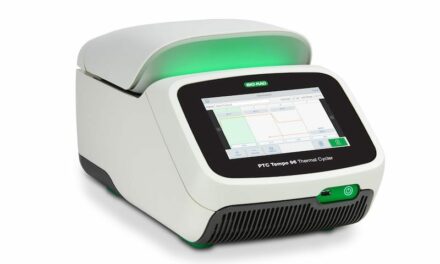Summary: Invitae has launched the Unlock Behind the Seizure program to provide accessible and affordable genetic testing for pediatric epilepsy patients, aiming to shorten diagnostic times and enable personalized care.
Takeaways:
- Increased Access: The program aims to make genetic testing more accessible and affordable for patients under 18, assisting in the diagnosis of epilepsy.
- Impact on Treatment: Genetic testing through this program has shown to improve disease management and alter clinical treatments, with many patients experiencing reduced or eliminated seizures.
- Advancing Research: The program contributes valuable genetic data to Invitae’s rare disease database, aiding biopharma research and connecting patients to clinical trials and new therapies.
Invitae, a medical genetics company, has. announced the launch of its Unlock Behind the Seizure program, which provides accessible and affordable genetic testing for pediatric epilepsy patients in the hopes of shortening the diagnostic odyssey and enabling a path towards effective, personalized care and precision therapy1.
Millions of people worldwide live with epilepsy and more than half of epilepsies are caused by genetic abnormalities. Clinical practice guidelines recommend genetic testing for all patients with otherwise unexplained epilepsy2, in part because early genetic testing can provide a direct, cost-effective and accurate tool to help support a diagnosis, and is associated with fewer invasive procedures for patients.3
Unlock Behind the Seizure Aims to Increase Access
Invitae Unlock Behind the Seizure is designed to make testing for patients under the age of 18 more accessible and affordable by assisting patients. Invitae believes that with results from this program, healthcare providers may gain insights into the underlying genetic cause of their patients’ epilepsy, which can inform tailored treatment plans.
In a study, Invitae found that among patients with epilepsy and a molecular diagnosis, those tested with Invitae’s epilepsy panel had a 1.4-fold higher rate of findings that impact disease management or prevention, compared to those tested with an exome test.4 Furthermore, healthcare providers reported that genetic diagnosis with this panel changed clinical management for half of the patients tested.5 In fact, in the clinical study by McKnight et al. 67% of epilepsy patients with positive results from genetic testing experienced a reduction or elimination of their seizures, when clinical treatment was documented as being changed based on the genetic test results5.
Improving Therapy
In addition to helping patients get a genetic diagnosis and receive the most effective therapy, where therapies for specific conditions don’t yet exist, this program helps build the inclusiveness and diversity of Invitae’s rare disease database with invaluable genetic and clinical insights from the test results. Biopharma teams harness these insights to inform groundbreaking research in rare disease drug discovery and connect patients to clinical trials and new therapies based on their genetic test results.
“Using genetic testing as a first-line diagnostic, such as through Invitae’s Unlock Behind the Seizure, has been shown to dramatically decrease time to diagnosis for children experiencing unprovoked seizures. Earlier genetic diagnosis enables clinicians to provide precision therapies tailored to patients’ specific type of epilepsy sooner, reducing or eliminating seizures for many patients with genetic epilepsy, and opening the opportunity to enroll in precision therapy clinical trials for many others.” says Ed Esplin MD, PhD, FACMG, clinical geneticist at Invitae. “Invitae is committed to improving outcomes for patients with a multitude of rare diseases. To date, we have provided testing for over 5 million patients, giving answers to patients and their families. With this data set, we are generating one of the largest genomic datasets in service of rare disease treatment research.”
Invitae typically returns results within 10-21 days. The recent median turnaround time for this test is 7.5 calendar days, accelerating the time to critical answers for patients and their families who need them most.6 This program is available to individuals in the United States who are under the age of 18 and have experienced an unprovoked seizure.
References
- Truty R, et al. Possible precision medicine implications from genetic testing using combined detection of sequence and intragenic copy number variants in a large cohort with childhood epilepsy. Epilepsia Open. 2019 Jul 1;4(3):397-408. doi: 10.1002/epi4.12348. PMID: 31440721.
- Smith L, et al. Genetic testing and counseling for the unexplained epilepsies: An evidence-based practice guideline of the National Society of Genetic Counselors. J Genet Couns. 2023 Apr;32(2):266-280. doi: 10.1002/jgc4.1646. Epub 2022 Oct 24. PMID: 36281494.
- Swartwood SM, et al. Genetic testing for the epilepsies: A systematic review. Epilepsia. 2022 Feb;63(2):375-387. Early Genetic Testing in Pediatric Epilepsy: Diagnostic and Cost Implications. Epilepsia Open. 2023
- Invitae data on file.
- McKnight D et al. Genetic Testing to Inform Epilepsy Treatment Management From an International Study of Clinical Practice. JAMA Neurol. 2022
- Invitae data on file, median TAT of 7.5 during Q2 2024.





